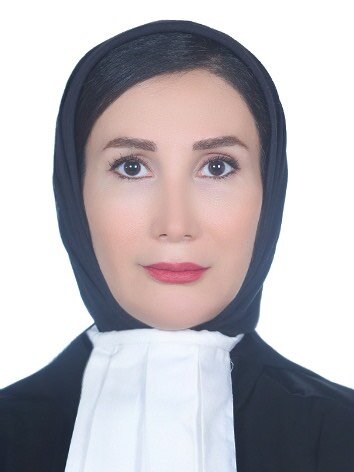Best Cannabis Law Lawyers in Tehran
Share your needs with us, get contacted by law firms.
Free. Takes 2 min.
List of the best lawyers in Tehran, Iran
About Cannabis Law in Tehran, Iran
Cannabis laws in Tehran, Iran are strictly enforced, with stringent penalties for possession, use, sale, and cultivation. The substances categorized under cannabis and its derivatives are considered illegal under Iranian law. The country’s approach to cannabis is influenced by Islamic law, which significantly shapes its legal framework and implementation. The possession or consumption of cannabis can lead to severe legal consequences, including imprisonment, fines, and other legal repercussions.
Why You May Need a Lawyer
There are several scenarios where an individual might require legal assistance related to cannabis in Tehran. These include being arrested for possession, sale, or distribution of cannabis, facing charges related to cannabis trafficking, or needing guidance on the legal implications of medical or industrial cannabis use if legislation changes. Legal advice is crucial in navigating the complexities of the judicial process and minimizing the consequences of allegations.
Local Laws Overview
The legal system in Tehran adheres strictly to national drug laws, which classify cannabis as an illicit substance. Under Iranian law, the use, possession, or trade of cannabis can result in severe penalties such as imprisonment, corporal punishment, or heavy fines. Enforcement is rigorous and zero-tolerance policies are typically applied. Exceptions might exist in the context of medical research or under special governmental authorization, but these are rare and highly regulated.
Frequently Asked Questions
Is cannabis legal in Tehran, Iran?
No, cannabis is illegal in Tehran, Iran. This includes its possession, use, sale, and cultivation.
What are the penalties for cannabis possession in Tehran?
Penalties can be severe and may include imprisonment, fines, or even corporal punishment depending on the amount and circumstances of the possession.
Can foreigners be exempt from local laws regarding cannabis?
No, foreign nationals are subject to the same laws as Iranian citizens and face the same legal consequences if found in violation.
Is there any legal use for cannabis in Iran?
Cannabis use is generally prohibited, with very few exceptions potentially allowed under specific governmental or medical research conditions.
Can previous cannabis-related convictions affect future legal cases?
Yes, prior convictions can impact the severity of sentencing in future cases, potentially leading to harsher penalties.
Are there any legal movements towards cannabis legalization in Tehran?
As of the latest updates, there is no significant movement towards legalizing cannabis for recreational or medicinal use in Tehran, Iran.
How can I avoid legal issues related to cannabis in Tehran?
Avoid possessing, using, or engaging in any activities involving cannabis. Being informed of the strict legal stance is crucial for compliance.
Is medical cannabis recognized in Iranian law?
Medical cannabis is not broadly recognized or legalized in Iranian law; any medical use must be under explicit authorization, which is rarely granted.
What should I do if I am arrested for a cannabis-related offense?
Seek immediate legal assistance from a lawyer experienced in drug-related cases to navigate the judicial process effectively.
Can I seek expungement of a cannabis-related conviction?
Expungement laws in Iran are complex and may not readily allow for clearing convictions. Legal counsel should be sought for specific guidance.
Additional Resources
For further assistance, individuals can reach out to governmental bodies such as the Iranian Judiciary, or consult with legal practitioners who specialize in criminal law and drug offenses. Additionally, organizations focused on legal rights in Iran might provide informational resources and support.
Next Steps
If you require legal assistance related to a cannabis issue, it is advisable to consult a lawyer who specializes in Iranian criminal law, particularly with experience in handling drug-related cases. They can provide guidance tailored to your specific situation and help protect your legal rights within the local framework.
Lawzana helps you find the best lawyers and law firms in Tehran through a curated and pre-screened list of qualified legal professionals. Our platform offers rankings and detailed profiles of attorneys and law firms, allowing you to compare based on practice areas, including Cannabis Law, experience, and client feedback.
Each profile includes a description of the firm's areas of practice, client reviews, team members and partners, year of establishment, spoken languages, office locations, contact information, social media presence, and any published articles or resources. Most firms on our platform speak English and are experienced in both local and international legal matters.
Get a quote from top-rated law firms in Tehran, Iran — quickly, securely, and without unnecessary hassle.
Disclaimer:
The information provided on this page is for general informational purposes only and does not constitute legal advice. While we strive to ensure the accuracy and relevance of the content, legal information may change over time, and interpretations of the law can vary. You should always consult with a qualified legal professional for advice specific to your situation.
We disclaim all liability for actions taken or not taken based on the content of this page. If you believe any information is incorrect or outdated, please contact us, and we will review and update it where appropriate.















